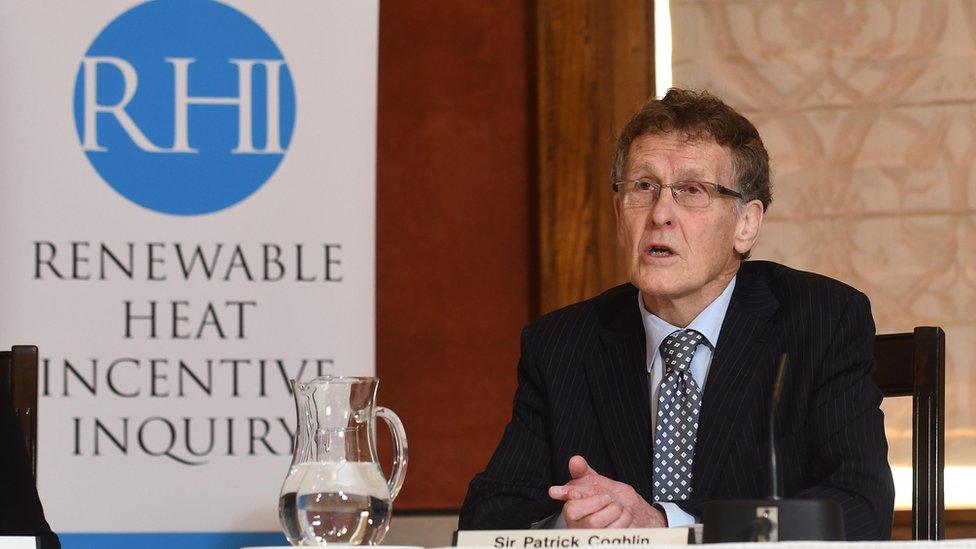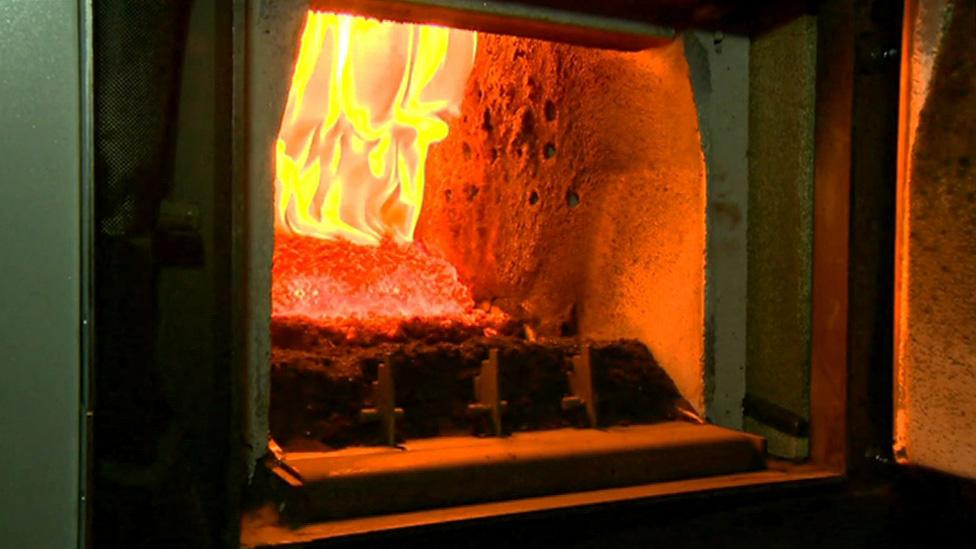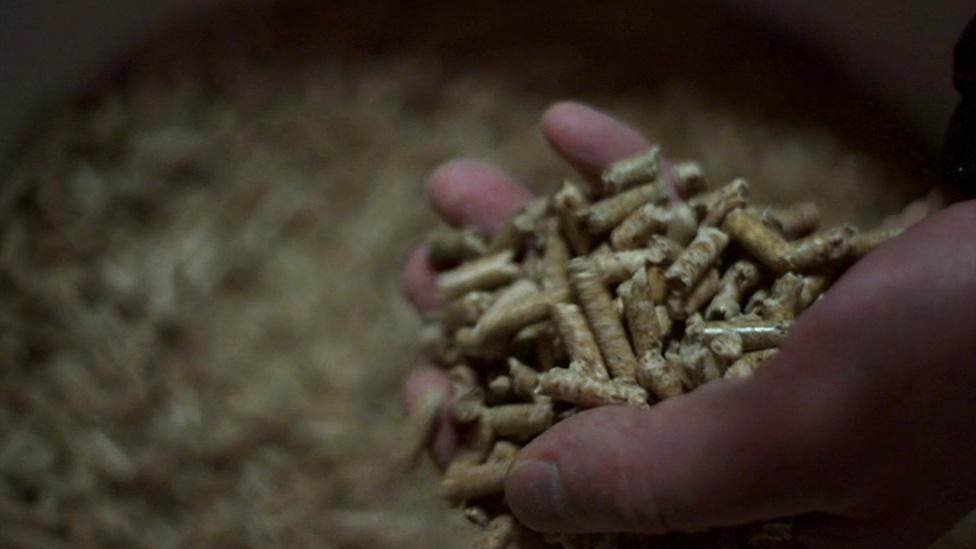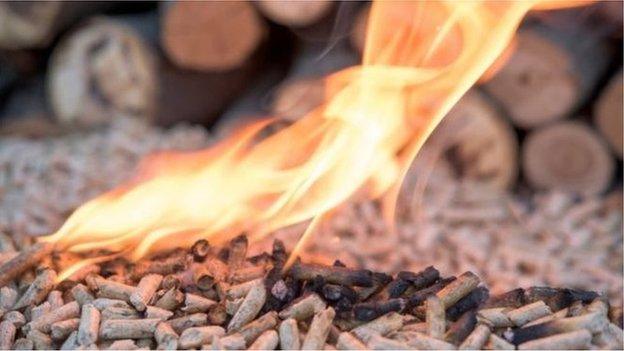RHI inquiry: Public evidence hearings expected in autumn
- Published

The inquiry is "fact-finding exercise" and not an "adversarial trial", Sir Patrick Coghlin said
Public evidence hearings in an inquiry into a botched green energy scheme are expected to begin in autumn this year.
The chairman of the Renewable Heat Incentive (RHI) inquiry made the announcement during a preliminary hearing at Stormont, outlining its work.
Sir Patrick Coghlin said his inquiry will investigate failings in the scheme "wherever accountability may lie".
No time limit has been placed on the scheme to produce a conclusion, the retired Court of Appeal judge added.

The RHI scheme offered a financial incentive for businesses to install renewable heat systems, such as biomass boilers
He said he "will insist" that the inquiry has "complete independence" and it will carry out its work "without fear or favour and free from any external pressures".
The public and the media must understand that the inquiry is a "fact-finding exercise" and not an "adversarial trial", Sir Patrick said.
Statutory notices requiring production of documents have already been served on 125 bodies such as government departments.
Notices requiring witnesses statements have also been served.
The inquiry team expects to view hundreds of thousands of pages of documentation relating to the scheme.
Sir Patrick said another public session could be held in June, when further information about the inquiry timetable may be announced.
Spiralling costs
The green scheme was set up in 2012 to encourage businesses and other non-domestic users to move from using fossil fuels to renewable heating systems.
In what has been dubbed the "cash-for-ash" scandal, the flawed scheme meant users could legitimately earn more cash the more fuel they burned.
The inquiry was announced in January by the then finance minister Máirtín Ó Muilleoir.
It was set up to investigate the design and operation of the scheme, which at one point had a projected overspend of £490m.
Cost controls have now been introduced for the current financial year.

A handful of wood pellets, the main fuel used in the RHI scheme
The inquiry will consider the delay in implementing cost controls in 2015 and allegations of political pressure to keep the scheme open at a time when applications were flooding in and the projected costs were spiralling.
The fallout was cited as one of the reasons for Sinn Féin withdrawing from devolved government and forcing the recent Northern Ireland Assembly election.
The party has said it will not share power with Arlene Foster as Democratic Unionist Party leader until the inquiry has fully investigated her role.
'Vindicated'
Mrs Foster was the minister in charge of the former Department of Enterprise Trade and Investment, which ran the scheme.
She has said she expects to be vindicated.
Meanwhile, some recipients of the RHI subsidy have said cuts to tariff rates have had a significant impact on their business.
The changes were applied from April, but a usage cap means some people who borrowed tens of thousands of pounds to put in a boiler are receiving no subsidy payments and are struggling to repay the banks.
A group of about 500 boiler owners is going to court in an attempt to have the new reduced tariffs set aside.
They say they signed up to a government scheme in good faith and they had factored in the promised subsidy payments to bank loans.
- Published7 November 2017

- Published23 October 2019

- Published17 January 2017
